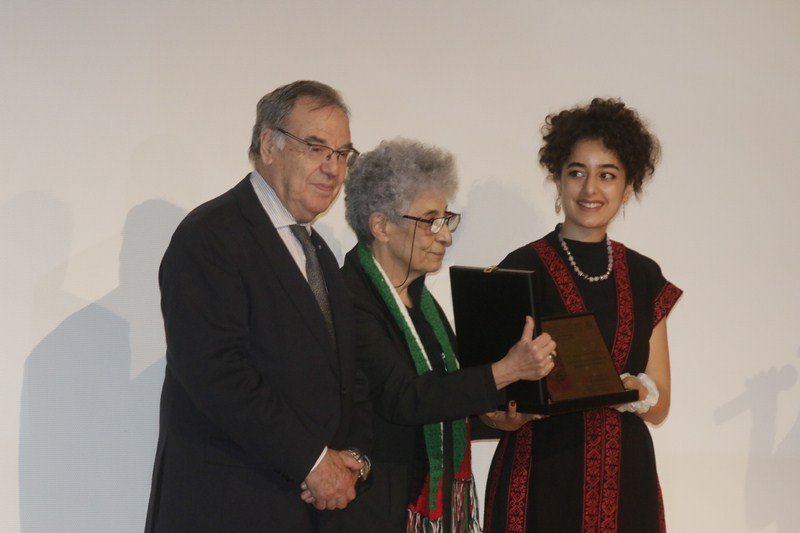The 11th Algiers International Film Festival has reopened its doors to theaters after closing due to Covid. Much interest in films and debates. Focus on Memory and Resistance 60 years after independence.
The eleventh edition of the International Film Festival in Algiers (December 2-10, 2022) was a window onto the world for Algerians, after three years of interruption due to Covid.
«The Festival is intended for the public», began Zehira Yahi, commissioner of the initiative, concluding the nine days of immersion in films and debates. «I want to refer to the appeal of 1 November 1954 (with which the National Liberation Front had launched the war of independence) which began as follows: “To you who are called to judge us”. We work for the public… there are practically no opportunities to see films that come from everywhere: Great Britain, Canada, Rwanda, Sweden, South America… That’s the most important thing. It’s about opening windows to the world.” And to open them requires a lot of effort on the part of the commissioner and the artistic director, Ahmed Bedjaoui, who have once again defied the many obstacles, first of all the financing of the initiative which has decreased and not only due to inflation, recovering all the selected films with meticulousness among the proposals that have accumulated in three years, following the moods of the artists when they collide with technical problems. Problems tackled meticulously by Zehira Yahi and Ahmed Bedjaoui who have been dealing with this appointment with committed cinema for years with great passion and commitment. Which is not only a window on the world for Algerians, but also for us who, in the past as now, have the opportunity to see films that we will never have another opportunity to see. Fiction, short and feature films, documentaries, recent or rediscovered in the archives. An alternation of images that bring us to the present through memory.
The pandemic has penalized cinema and its users but has also increased the interest in participating in collective rituals. Which are not exhausted only in cinematic visions but also in the various focuses. Particularly discussed was the one dedicated to “memory & resistance” through the rediscovery of archives and restoration of historical films which took place in the hall of the historic cinémathèque, inaugurated in 1964 and considered the “Mecca of cinema” in the 1960s. Historical archives to which Italian directors have also contributed, such as the famous Battle of Algiers by Gillo Pontecorvo and the less known but much appreciated Les mains libres by Ennio Lorenzini, recently restored, to which the latest number of the annals of the audiovisual archive of the movement is dedicated worker and democrat (Aamod). That of memory and resistance is a theme made extremely topical by the celebration of the 60th anniversary of Algerian independence (July 5, 1962), but it did not concern only Algeria. In a more open approach to the world of peoples still oppressed today, the internationalism of Algeria is rediscovered, which has its roots in the 1960s and in the celebration of pan-African cinema of 1969. In the foreground, as indeed in the other editions of the Festival, Palestine, with projections such as Youm el ardh (Earth Day) by Monica Maurer, or Western Sahara with Wanibik (by Rabah Slimani), the people who live in front of their land. Support for the Polisario Front for the independence of Western Sahara from Morocco and for Sahrawi refugees in Algeria is nothing new, but the film made us discover a film school (the pupils are the protagonists) created in such a territory inhospitable, due to the climate and living conditions, to keep the memory and culture of a people still colonized. Not only does the Wall built by Morocco to isolate them weigh on the Sahrawis in the camps, but also the drought, the pandemic and the illusions of those who propose escaping from reality with drugs or extraneous and alienating canons of beauty that induce women to clear their skin with dangerous products (short by Ahmed Mohamed Lamin: «El precio de la belleza»). The “femmes” focus, in addition to a rich debate, has given us reconstructions of the confrontation between different generations in their relationship with their country of origin, but above all blows in the stomach with the images of violence against women that knows no borders.
And then of course Algerian films. The ideas and the directors who translate them into images are a richness in stark contrast to the crisis of Algerian cinema (a death foretold, due to wrong choices made in the name of a «hybrid socialism», at the end of the 1960s, according to Ahmed Bedjaoui ). Among the Algerian directors Omar Belkacem who with his “Nos frangins” (Our brothers), will represent Algerian cinema at the Oscars. The fiction tells of the killing of two boys of Algerian origin, Malik and Abdel, killed by the French police on the same night between 5 and 6 December 1986.
A difficult task for the various juries (short and feature films, fiction) to choose among so many proposals but it was certainly a rewarding task, which added to that of the public, also divided into three sections.
Among the winners, coming from various countries of the globe, the Palestinian director Ameen Nayfeh with “200 metres” (200 metres) was unable to reach Algiers because he was inexplicably blocked at the Istanbul airport. Instead, he received a special mention from the Ramallah NGO Shashat (screens) which promotes the production of Palestinian female directors, represented by Dina Amin with Vine leaves.
Disappointment for the missed preview of the film La dernière reine d’Alger (the last queen), which was supposed to conclude the Festival. Reason: the ministry of culture has claimed the right to preview a film financed by the same ministry. It certainly does not bode well for the relaunch of Algerian cinema promised by the ministry.
traduit de https://www.globalist.it/culture/2022/12/18/una-finestra-aperta-sul-mondo/





